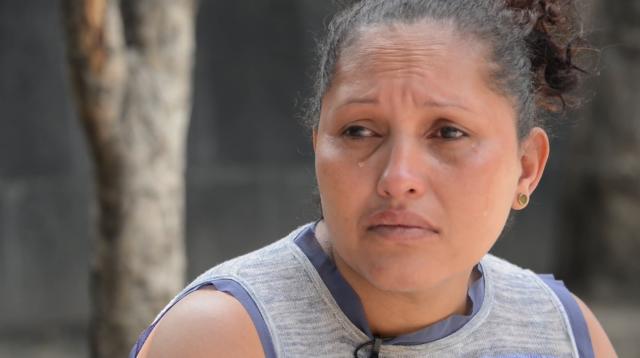A growing number of migrants from Latin America are stopping well short of their intended destinations in the United States. With the Trump administration cracking down on crossings at the U.S.-Mexico border, many are looking for refuge further south.
CGTN’s Al Baverstock reports.
For Dunia Dolores, a Central American migrant in Mexico, life has never been more uncertain. Two months ago, she and her two daughters fled violence in Honduras, taking with them only what they could carry.
“We rode on ‘The Beast’ train to Orizaba,” she explained. “They attacked us, and they stole everything.”
Recently arrived in Mexico City, Dunia now wants to remain.
“My sister was murdered in Honduras, and I will not allow the same future for my daughters. I want a good life for them, and not to have to live through the things that I’ve had to.”
She is one of thousands of Central Americans seeking asylum from the Mexico’s government. According to the NGO Sin Fronteras, 14,000 sought asylum in 2017.
While the United States remains the ultimate goal for most Central American migrants, Washington’s ever stricter immigration policy along its southern border has left many of those displaced from Honduras and El Salvador turning to Mexico for refuge.
“Of the 14,000 applications for asylum from Central Americans in Mexico last year, only 216 were accepted,” according to Sin Fronteras’ Sandra Alvarez. “So while in theory Mexico’s immigration policy is open to all, in practice this is not the case.”
Yet for those who are determined to remain, many say Mexico offers more opportunities than its northern neighbor.
A migrant herself, Lilian Mendoza now runs a restaurant that has become a haven of Honduran culture in the Mexican capital.
“On their way, migrants realize that the American Dream doesn’t exist, and that they can be better off in Mexico. There are no problems starting a life or business here, as long as it’s all done legally. That’s why so many choose to stay.”
For Dunia, it’s in Mexico where she sees a better life for her girls. But her hopes of remaining, like thousands of others, hang in the balance.
 CGTN America
CGTN America
 Dunia Dolores, a Central American migrant in Mexico, and her daughters were robbed on a train known as “The Beast” while escaping violence in Honduras. (CGTN America)
Dunia Dolores, a Central American migrant in Mexico, and her daughters were robbed on a train known as “The Beast” while escaping violence in Honduras. (CGTN America)
